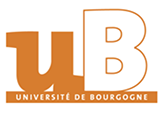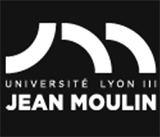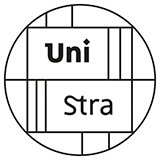Introduction
The University of Strasbourg (UDS) is one of the most outstanding universities in Europe and one of the top 100 universities in the world. It is located in Strasbourg, a famous city on the border between Germany and France. Its history can be traced back to 1538 and it is a pioneer of modern higher education reform in France.
Overview
Number of students and faculty: With more than 52,000 students and 3,300 researchers, it is one of the universities with a large number of students and faculty in France.
Campus distribution: The campus is distributed in 4 main locations in Strasbourg and some areas in Alsace, with a total of 110 buildings and 80 hectares of land. Its main campus is located in the city center, between the "Administrative City", "Place" and "Gallia" bus and tram stations.
History
The history of the University of Strasbourg can be traced back to the Protestant secondary school founded by Jean Sturm in 1538, which was converted into a university in 1621 and became a royal university in 1631. In history, Germany and France have alternately held sovereignty over Strasbourg many times, and the school has been affected by this, but it has always maintained its development. In 1971, influenced by the French higher education reform, the University of Strasbourg was divided into Strasbourg I, II and III. The three universities merged into the current University of Strasbourg in January 2009, and the entire merger was completed in 2012.
Establishment time
1538.
School strength
Teaching quality: As a multidisciplinary comprehensive university, it offers a wide range of degree courses and training programs covering major academic fields such as art, literature, language, law, economics, management, politics, social sciences, humanities, science and technology, and health, providing high-quality education for students with different educational backgrounds and needs.
Scientific research level: Strong scientific research strength, with 71 research laboratories, and its alumni, teachers and researchers include 18 Nobel Prize winners and 1 Fields Medal winner in mathematics, has achieved remarkable research results in multiple disciplines, and actively promoted the transformation and application of scientific research results.
Nature of the institution
Public research university.
Educational philosophy
No clear official statement has been found yet, but from its development history and discipline setting, the school focuses on cultivating students' comprehensive literacy and interdisciplinary ability, and is committed to providing students with high-quality education combined with the latest scientific discoveries, ensuring that graduates have good career prospects, and cultivating talents with innovative spirit and practical ability for society.
Key laboratories and disciplines
Key laboratories: It has 71 research laboratories distributed in six campuses, such as the Institute of Supramolecular Science and Engineering. These laboratories are equipped with advanced scientific research equipment and facilities in their respective research fields, providing strong support for researchers and students to carry out cutting-edge research.
Key disciplines: It has significant advantages in multiple disciplines, such as natural sciences such as biology, chemistry, medicine, computer science, and physics, as well as humanities and social sciences such as literature, art, language, law, economics, management, politics, and social sciences. In particular, its expertise in European politics is outstanding, and research in corporate management, labor law, law and political science is also very active.
Department
Currently composed of It consists of 35 academic colleges, schools and institutes.
Ranking
2017 "Academic Ranking of World Universities (ARWU)": ranked 142nd (5th in France).
2018 US NEWS Global University Ranking: ranked 187th.
2018 QS World University Ranking: ranked 303rd.
Expenses
Tuition fees: Tuition fees at French public universities are relatively low. The annual registration fee for undergraduates is about 200-400 euros, and the registration fee for masters and doctoral students is about 400-600 euros, but there may be slight differences in different majors.
Living expenses: Depending on personal lifestyle and consumption habits, the cost of living in Strasbourg is lower than that in large cities such as Paris, about 800-1200 euros per month, including accommodation, food, transportation and other expenses.
Campus
Campus Environment: Strasbourg is located at the eastern end of France, across the Rhine from Germany. It is the capital of the Alsace region and the Lower Rhine province of France. The city has a population of about 270,000, and the total population of the metropolitan area across France and Germany reaches more than 860,000. It has the characteristics of both France and Germany in terms of language and culture. It is the intersection of two different cultures. The campus has a beautiful environment and a strong cultural atmosphere, providing students with a rich learning and living experience.
Campus Facilities: There are many modern buildings on campus, such as Escarpe, Strasbourg Doctoral College, Institute of Supramolecular Science and Engineering, etc. There are also complete infrastructure such as student dormitories, restaurants, libraries, etc., which provide convenience for students and faculty members to study, research and live.
-

University of Angers
-

University of Caen Normandy
-

University of Bordeaux
-

Claude Bernard University Lyon 1
-

University of Burgundy
-

CY Cergy Paris University
-

Clermont Auvergne University
-

University of Artois
-

Jean Moulin University Lyon 3
-

University of Franche-Comté
-

Mesoamerican University
-

Istmo University
-

Mariano Galvez University of Guatemala
-

Regional University of Guatemala
-

Galileo University
-

Francisco Marroquín University
-

Rafael Landívar University
-

University of the Valley of Guatemala
-

University of San Carlos of Guatemala
-

Technological Institute of Tlaxcala Plateau
-

Golfo University
-

Technological University of South Sonora
-

Technological University of Huejotzingo
-

Tizimín Institute of Technology
-

Chilpancingo Institute of Technology

